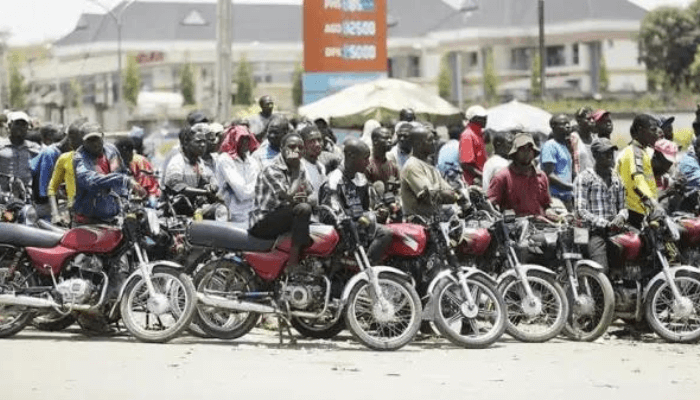The Manufacturers Association of Nigeria (MAN) has raised serious concerns over the apparent neglect of indigenous motorcycle producers by government agencies, alleging that preference continues to be given to imported two- and three-wheeler brands. At a recent association gathering, stakeholders warned that the lack of policy support, regulatory enforcement, and official patronage is stifling the growth of the local motorcycle manufacturing sector.
According to MAN, Nigeria is home to several local motorcycle assembly firms that produce affordable and durable bikes tailored to domestic needs. Despite meeting automotive assembly standards and operating within designated automotive zones, these manufacturers face systemic disadvantages. Government procurement contracts for motorcycles—whether for rural transport initiatives, security agencies, or national service programmes—are routinely awarded to foreign brands, often without transparent competitive processes.

The situation, according to industry observers, perpetuates a reliance on imported bikes that undermines domestic linkage opportunities and curtails employment generation. MAN officials highlighted that although assembled locally, foreign-brand motorcycles often rely heavily on imported parts, limiting opportunities for full local content development. By contrast, Nigerian manufacturers source more components domestically and provide significant indirect jobs through local supply chains.
Weak policy implementation looms large in the grievances. MAN argued that the Automotive Industry Development Plan (AIDP), which mandates minimum local content targets and incentivizes indigenous production, remains largely unenforced. While the decree calls for percentage thresholds in local component content, import licenses continue to be issued freely to foreign motorcycle brands, without penalties for regulatory noncompliance.
This regulatory dissonance, said the association, creates an uneven playing field: indigenous firms are saddled with taxes, forex costs, and capital inefficiencies, while foreign firms enjoy cheaper access to market. Manufacturing executives lament that efforts to secure contracts for community transport, postal services, and agricultural development programmes frequently fall through due to bias toward well-known imported brands—even when they cost more and deliver little after-sales local support.
Another major challenge is the apparent disregard by government transport and security agencies for made‑in‑Nigeria vehicles in fleet procurement planning. Local companies cite instances where state governments wheel out procurement requirements that openly favor foreign brands, explicitly demanding specifications that only international suppliers can meet. These moves discourage local players and distort procurement markets.
Financial constraints compound the predicament. Local manufacturers struggle to access long-term credit and investment, making it difficult to expand capacity or upgrade technology. While the Central Bank of Nigeria (CBN) has intervention funds designated for local content enterprises, industry leaders say disbursement mechanisms often exclude larger local assemblers whose equipment and capacity expansion needs require structured financing.
Skill gaps also remain unaddressed. Although local manufacturers are capable of assembling motorcycles, they lack systematic access to technology transfer, supplier development initiatives, and human capital training that could elevate production quality and competitive viability. MAN representatives urged government agencies and financial institutions to support capacity-building programmes for local suppliers, research and development, and quality testing certification.
A further point of contention is the impact on job creation. Indigenous manufacturers directly employ thousands of workers in assembly plants, logistics, sales, after-sales service, and spare parts retail. Despite this, industry data shows that imported motorcycles dominate formal road registration and fleet composition in transport unions. MAN argued that every unit imported denies employment possibilities, tax revenue, and economic ripple effects that local production could sustain.
Business advocacy groups supporting MAN’s position pointed to the broader implications for industrial policy. Nigeria’s ambition to diversify its economy away from oil hinges in part on developing domestic manufacturing. If the motorcycle sub-sector remains undeveloped, it could become emblematic of missed opportunities for industrialization. Coordinated policies around taxation, tariff reviews, and tariff exemptions could reverse the imbalance—yet these remain episodic at best.
Critics also highlight concerns over counterfeit and substandard imported bikes that operate without type approval certification, bypass safety standards, and expose users to accidents. Local manufacturers, constrained by regulatory oversight and higher compliance costs, believe the government must enforce standards equitably. By promoting approved local brands, authorities could reduce the circulation of unsafe bikes and improve road safety.
Stakeholders have proposed several corrective measures: revision of procurement guidelines to favour locally assembled brands; enforcement of type-approval regulations in carrier agencies; structured finance support for expansion; local content incentives such as tax holidays or tariffs on fully built imports; and public awareness campaigns to promote Made‑in‑Nigeria motorcycles.
The Business Council and private sector reform advocates praised MAN’s position and called for inter-ministerial coordination to correct the policy drift. They argued that motorbike producers should be included in future export and industrialisation roadmaps, benefiting from institutional incentives available to other light manufacturing clusters such as agro-processing and textiles.
Similarly, provincial transport unions signalled support for industry calls, lamenting the high costs and limited after-sales service associated with imported motorcycles. They asked relevant agencies to prescribe minimum percentage procurement quotas for domestic brands in public works and transport contracts, and to prioritize local content in federal fleet requirements.
As consumer interest in low-cost mobility grows, market potential for local motorcycles remains untapped. Bridging that gap, MAN believes, could not only spur industrial growth but also expand economic inclusion through accessible transportation, reduced cost of living, and rural mobility enhancement. The opportunity, they contend, is obvious—but only if government policy catches up.
Until then, MAN officials warned, Nigeria will continue to export capital and import maintenance dependencies. The association concluded its appeal by urging urgent engagement with the Ministries of Industry, Trade and Investment, Transport, and Finance to reposition local vehicle producers at the centre of manufacturing strategy. For domestic producers, the message is clear: policy action must match rhetoric—before the chance to build a resilient motorcycle industry slips further away.
Support InfoStride News' Credible Journalism: Only credible journalism can guarantee a fair, accountable and transparent society, including democracy and government. It involves a lot of efforts and money. We need your support. Click here to Donate
